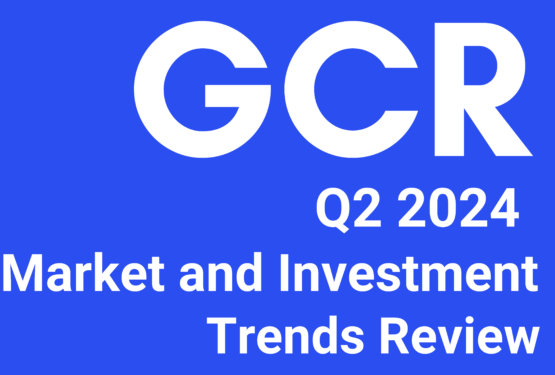Interview with Alex Gladstein from the Human Rights Foundation, and Leo Weese, President of the Bitcoin Association of Hong Kong

This free preview of Global Coin Research is offered to our loyal readers as a representation of the unique information and
In this podcast interview, we get Alex and Leo’s take on China and Hong Kong’s approach to Bitcoin from a political, cultural and humanitarian perspective. We also talk in-depth about China’s technology and data control policies and mining.
The podcast went over time, but there were so many great discussions that we made sure to include the entire 1 hour 15minute conversation in transcript below.
Alex Gladstein is Chief Strategy Officer at the Human Rights Foundation. He has also served as Vice President of Strategy for the Oslo Freedom Forum since its inception in 2009.
Leonhard (Leo) Weese, is the President of the Bitcoin Association Hong Kong.
Alex Gladstein
Hey, I’m Alex Gladstein. I’m the chief strategy officer of the Human Rights Foundation. We’re a non-profit that focuses on helping people who live under authoritarian governments. So we focus on closed societies and tactics and tools and strategies and sort of campaigns that might help people who live in places that don’t really have a Free Press or might have difficulty connecting to the financial system or let’s say the internet or who don’t enjoy the same sort of rights and freedoms that others do when it comes to things like being able to start a business or a local non-profit and things like that. So we’ve been looking at how technology can help people in tough political environments for a long time.
Obviously things like encryption, VPNs. You know, avoiding censorship and surveillance has been a key theme. I think digital hygiene has become more and more important in the last few years especially…. And a couple years ago through you know engagement with a company called BitFury which started as a Bitcoin mining operation, we started to look at you know Bitcoin as one of these tools. So through my engagement with them and then a series of other companies in the wider cryptocurrency space and Blockchain space, I just started to get connected to people who are building and investing and thinking about the new world that Bitcoin and its brethren would bring about. And in particular, I started to get very interested in Bitcoin specifically as a liberation tool. I think it has some remarkable sort of aspects and attributes that make it really well-suited to help people who live in dictatorships and to help people who don’t have the luxury of being part of the modern financial system.
So in particular, this ability to send money in a peer-to-peer way without having to go through the financial system you know if you have a basic phone and access to the Internet at either end, the ability for these two entities to transact with each other without having to ask permission, without needing a passport, without having to prove their identity or prove themselves to some sort of state approved entity is a pretty radical innovation. Truly radical innovation.
I think on the same level that back in the 90s, the ability to start encrypting credit card information and stuff really helped give birth to the modern ecommerce society. I think Bitcoin is really starting to change the way that money can be moved abroad. And not just for individuals, but also for like regional agencies. So when we talk about whether it’s like sort of subdivisions of the UN or ACN you know thinking about helping people who don’t have access to money or services or who are victims of disaster or political attacks, things like that, I think this ability for good intentioned government entities to be able to send funds or resources directly to people without having to go through local governments is going to be really interesting, I mean your listeners should consider governments like the Burmese dictatorship for example who often try to bully international aid partners by saying like “no. We’ll only let you come in here and help people if you do X Y & Z.” I mean with Bitcoin, we can basically say screw you. Like we’re just going to give the money right away. So it’s kind of amazing to start to think about the impact it will have in the region you know especially given the backdrop of what’s happening in China obviously the region’s most powerful country most populous country where the government is using advanced technology to implement a pretty terrifying and comprehensive police state. Bitcoin remains something that and we can get more into this that they don’t seem to be cracking down on as much as they should or we think they would be and it remains a really interesting area for us to consider moving forward.
Joyce Yang
Yeah. I love to get in more detail to discuss both of you regarding this topic. Leo, why don’t you quickly introduce yourself to our audience as well.
Leo
Hi I’m Leo. I’m currently acting as president of the Bitcoin Association of Hong Kong. We are a not-for-profit that aims to bring the community together to get people to learn about Bitcoin, learn from each other, learn from guests, we hold meet ups and talks, panel discussion, seminars, an annual conference hackathon, developer meetup. I learned about Bitcoin when I was studying economics in Vienna. I didn’t fully understand it. I had few people to talk to about it and when I moved to Hong Kong in 2011, I got to know a few more people who also didn’t know much about it, but who very much wanted to talk about it and the Bitcoin meetup was formed around 2012 exactly to bring those people together. We realized there’s something big here that we don’t fully understand and even today, I would still say we don’t fully understand. And even today I would still say we don’t truly understand. And yeah, we went to a more and more formal and organized organization of enthusiastic entrepreneurs and developers who are either from Hong Kong or travelling through Hong Kong.
So we based in Hong Kong tomake this happen or to build on top of it or to further discuss. And people in the Association are interested in it for quite different reasons. Some people have their technological background and I simply find this interesting from a technological perspective as a network. Other people are interested in the politics and the economics or simply how to make money from it or they might have a background in trading or there might be benefits in building applications for it or building hardware applications for it. I think Hong Kong’s advantages has always been in that it’s quite a well-connected city, it’s quite a global city especially among Asia. There’s a lot of streams from the surrounding economies that come together here. And it’s also, what keeps me in Hong Kong and what still keeps me in Bitcoin is that there’s something really big happening here and I think a lot of the benefits are gifts really to be to be felt, but they can already be seen on quite a micro level where individual life has been changed because of their ability to control their own money or their ability to more fluidly transcends across borders.
Alex Gladstein
And just to add one more thing to that, I think the rise of the cashless economy is just going to be so transformative I mean we’re already seeing it in most urban Chinese areas basically the disappearance of paper and metal money, I mean other countries in the region are maybe lagging behind a little bit, but the trajectory is obvious. I think that I don’t know Leo in 20 years I mean how much penetration do you think in your view would paper and metal money still have in East Asia in 20 years?
Leo
Yeah. It’s really hard to say. I think a lot of that depends also on how much cryptocurrencies are going to be able to replace cash as a bearer instrument and whether states use their ability to control people’s lives through cashless society.
China, the rise of digital money has also been quite… WeChat and Alipay in the beginning didn’t really care so much about what happens on their platform. There’re far fewer censors than PayPal would be or Venmo would be. People still quite openly trade drugs on WeChat for example because the communications might be better, but the payment usually are not and this very much helped these platforms to become very big.
But now that they[chinese government] have the ability to control people’s funds, we do see more censorship, we do see more accounts being closed down. Not just because of drugs, but also because of cryptocurrency transactions or because of any kind of suspicious activity including fraud.
And we see tools like the social credit monitoring system being explicitly used to control people’s lives and to change people’s behavior by hooking into their digital payments and partly giving them benefits for using these payment systems like not having to pay a deposit when you rent a car or not having to go to the check-in desk of a hotel, but also by punishing you through these systems for example, by no longer being able to take a high-speed train or by no longer being able to…
Alex Gladstein
Yeah. We saw this the other day right, with the news from one particular city that through some sort of you know WeChat eco system application, if it turned on, you would see debtors on your screen right. I don’t know if either of you saw this but…
Joyce Yang
Yeah I did.
Alex Gladstein
We can sort of see where this going and I think it’s not just in China where we need to be worried about the civil liberties implications obviously of the cashless economy, but I mean I was even reading in North Korea which we probably have to agree is like the least connected part of East Asia. Apparently, according to a newspaper that that gets information from inside North Korea smuggled out, North Korean people are using mobile phone credits as currency. So it’s kind of like the Kenyan [Word missed 00:13:52] model. So this telecom provider Koryo link is kind of setting the system up. So even in the least connected part of East Asia, you’re starting to see people on the road to the cashless society.
Joyce Yang
Yeah for sure. I wanted to quickly step back a little bit and Leo, if you could give our audience a quick overview of what’s currently going on with Bitcoin in China and Hong Kong that you’re seeing? And I think it’s something that a lot of folks hear in the press about these different events that are happening, but what is actually happening?
Leo
I believe in China, Bitcoin is mainly seen as a speculative tool, partly because people do see some kind of potential and they believe this could one day be very big, but probably more relevant as people not having access to the stock market in the same way as people in the US and Europe might have.
And even then, the stock market has not been as trusted. It’s seen as rigged and kind of a playground. People are not used to cryptocurrency exchanges, which operate globally, which can be very liquid and where people essentially gamble. And for them, with cryptocurrency, it’s just a medium of exchange and they would be willing to bet on anything on the platform.
So we also see people moving to sports betting or to regular gambling that is facilitated with Bitcoin, but the actual Bitcoin trading which probably is by far the most popular is the type of gambling tool, as a type of investment gambling.
And that’s probably not as favorable or charming to what Bitcoin is or what it could be, but it’s certainly giving a lot of people exposure and the feeling for how to behave and people then turn to Bitcoin for other things, for example, for making a payment that they otherwise couldn’t easily make or for transferring money abroad. Yeah, I think we’ve been seeing that experience of how Bitcoin transactions function, and by simply being available for them when other options are not.
Joyce Yang
Yeah that’s great. And it sounds like we previously spoke and touched on this idea of parallel economy that’s happening there. Can you talk a little bit more about that?
Leo
The parallel economy in China is very difficult to grasp because it doesn’t only do things that we might see as subversive, but it might include very regular activity.
A lot of loans for example are handed out in a parallel economy. There’s a big shadow banking market when people import goods from overseas or when people export goods. They often cannot do that through the legal venue, but they have to turn to trick to receive the payments from East Africa, from Southeast Asia and often even from Europe or the United States. A lot of activity is done outside of the scope of capital controls or outside of the scope of explicit approval of regulator or custom simply because the system doesn’t always work.
It’s a very [Inaudible 00:18:04] system. There are lots of rules that contradict each other and even the government might often recognize that people have to employ certain tricks to make things work or to make a living.
Joyce Yang
So it sounds like there are activities going on, but do you think the government is not being able to oversee and regulate all these underground activities or they just choose not to?
Leo
Partly they are not able to oversee everything and partly, they realize that there is a collateral damage to any kind of control that they exercise. Any time they make their customers inspection stricter or anytime they review payments going overseas, they [Inaudible 00:19:05] the risks that somebody is unable to sell something manufactured in China to oversees. It’s not very easy to see through a fake invoice for example. So when people send money abroad, they use a lot of fake invoices from overseas companies that don’t actually corresponds to an inflow of good. So if we look at the official statistics, then a lot of the import into China might be inflated because those are actually people [Inaudible 00:19:38].
People are pretending to buy something from oversees that they need as an input to their manufacturing when in fact, they’re sending the profits abroad. And that is very hard for them to do, but it’s also very hard for them to crack down on because this will also hurt legitimate import. The more we start to open containers and look what is really inside, the more you follow up with people’s invoices and payments,the more you slow down the economy. And I think the goal of growing the economy and growing well is to supersede a lot of other things in China.
Alex Gladstein
Yeah and to add two things to that one would be on the privacy front, it’s not that clear as Leo is saying you know how much they would be able to monitor individual Bitcoin transactions. From what we can understand, there isn’t a countrywide effort to persecute people specifically for onchain Bitcoin transactions, but I’d love to hear what Leo has with regard to information about what he thinks the government is doing on that front and if they did want to start locking down in that area, what they would do. And secondly with regard to capital controls, one interesting area is of course Bitcoin mining itself. I mean it’s one thing when you have some assets in China and then you need to move it into Bitcoin or a different cryptocurrency in order to move it out of the country. But if you’re mining and you’re kind of natively accumulating Bitcoin, moving it out is much more of a negligible problem right Leo isn’t it accurate?
China’s view on Bitcoin
Leo
Yeah the first question about Bitcoin onchain transactions and punishing them, I think Chinese laws are always meant to be very ambiguous. There’s rarely like a clear ban on something and that’s partly because the government doesn’t really want to ban something that they cannot ban. They know that there will always be some people circumventing their control, but by making something like strictly illegal, that will simply demonstrate their inability to control something. So instead, these existing laws are applied or quite ambiguous restrictions are being applied where it might not always be very clear what’s exactly legal or not. For example, we do know that Bitcoin is recognized as some kind of virtual commodity, and that’s generally legal to transact, but it’s illegal to use it for payments and it’s illegal to use Bitcoin to of course violate any other law, for example, circumvent capital control.
The other part when people then use cryptocurrencies to circumvent capital control. I think on a small scale, that works relatively well because there’s a liquid OTC market where people can find each other and chat through with Telegram, or the local ones like WeChat and people can find somebody else who receives a wire transfer or an Ali pay or a WeChat transaction and give you Bitcoin.
And you can then spend these Bitcoin online or send these Bitcoins overseas, but I think on a very large level, this doesn’t work. If a lot of people were to use Bitcoin to circumvent capital controls and there are no other means of supplementing capital control, then people would start buying Bitcoin in China and sell them overseas and the Bitcoin’s price in China would rise. And without anybody able to circumvent capital control into traditional means, the cost of making this illegal transaction would rise pretty much infinitely. So I think the people who control capital control know about this and that Bitcoin to circumvent of capital controls might only be acceptable to very large transfers.
Alex Gladstein
So what you’re saying is that the canary and the coalmine situation would be if the Chinese government started to really crack down on capital controls in the crypto space, we would know because we would see a rise in the price of Bitcoin in China.
Leo
If they [the regulators] were to crack down on other means of evading capital control such as illegal invoicing, then we would see that in a rising arbitrage opportunity between Bitcoin CNY and Bitcoin and US dollars. It has also happened in Korea… it’s really fascinating how this will or already does change the way capital flows around.
Because normally when you move capital between Korea and China or Hong Kong, you would deal with large institutions like banks or an insurance company or industrial manufacturer. But suddenly as the counterparty, you might find cryptocurrency traders a lot more attractive. And I think the biggest impact that Bitcoin currently has on these financial networks is that it removes the need for coordination in circumventing capital controls. Normally when you circumvent capital control and you do that through a couple of million US dollars per transaction and you would need to specifically find somebody who wants to circumvent capital controls and then find a counter transaction and that is very difficult to coordinate.
But with Bitcoin, you will simply have a difference in Bitcoin prices between two countries as a signal, for this is profitable to move money between here and there. And so the main challenge or even the main opportunity is that if people communicate less with each other as they circumvent capital controls, they become a lot harder to catch because you cannot find a trail of emails or a WeChat chat anymore. Because people are simply acting on the price and the signal.
Alex Gladstein
Right. Joyce, I think from a human rights perspective, we can see the Chinese government reacting to this from a different angle in as much as in the dominant social media available to Chinese citizens; terms like Bitcoin and cryptocurrency, obviously networks that are harder to control more decentralized have been censored while terms like Blockchain have kind of remained not only not censored, but heavily promoted.
So it’s kind of clear to me at least that what we’re seeing is Xi Jinping and the Communist Party kind of pushing this idea of… as they say kind of Blockchains with Chinese characteristics that have centers and that have control whether in the form of like supply chain products or some sort of national digital cryptocurrency that would be attached to all these different app ecosystems and heavily promoting that and getting Chinese citizens really excited about that because it’s going to fight corruption and help open up transparency. Well at the same time, like really cracking down on Bitcoin basically because at the end of the day, I’m pretty sure they know what it’s going to be used for and at least I think they have an understanding that it’s going to be a threat to their power.
Leo
They’re certainly uncomfortable with it. I don’t know how much they realize the threat to their power; I am under the impression that regulators or people in government don’t believe in this at all. They don’t believe in the success of Bitcoin. They don’t believe in the potential and so they see it as something that they can simply wait out. Something that’s going to go away by its self. That is much to the advances of Bitcoin, but also speak to a larger skepticism that Bitcoin has yet to really prove itself as an efficient way of, for example, facilitating transactions.
Alex Gladstein
Well, how serious did you take their effort which was pretty widely publicized in October of 2017 to try and put a stop to sort of Bitcoin trading which obviously didn’t work?
Leo
I’m always under the impression that what they’re trying to control here is not the Bitcoin trading, but the narrative, and this has already been the case since 2013 when it first appeared on their radar when Bitcoin prices reached the price of $1000 and Bitcoin exchanges like BTC China became very large and prominent when there was a big arbitrage opportunity and people in China were buying Bitcoin.
What they were afraid of and what they’re still afraid of is somebody having the impression that there’s something the party cannot control or there’s something that could undermine the party and they heavily crackdown on that. So they will enact whatever a measure they need to get the international press to report on Bitcoin is now illegal China or the party is cracking down on Bitcoin. What they really love to read is somebody repeating the narrative that the party is in control of something.
I don’t worry too much about like how much people are gambling on these platforms or how much people are trading there. For example, the fact that the OTC market is very well functional and the process for how people trade on Bitcoin exchanges haven’t really changed much in the last 5 years. People would go to a website maybe nowadays, they need a VPN, but that’s accessible to a surprisingly large portion of the population and then they would interact with their customer service representative, which would be a Mandarin-speaking person maybe in China, maybe in Taiwan or in Thailand, and the person would instruct them to deposit money into some type of account that could be a bank account of an affiliate that could be an Alipay account of an OTC trader and they would then deposit the Bitcoin directly into the exchange or via the wallet of the user, but that process hasn’t really changed much.
The number of people who are using this probably increased quite a lot, but if I go around and repeat too often that the OTC market in China is very liquid and alive and people are using this en masse to trade Bitcoin and to send, the international narrative changes then. The party stresses out on the narrative and I don’t think so much on people using Bitcoin.
Alex Gladstein
Well this is a fascinating case study in the entire fragility of Bitcoin because theoretically, if the Chinese government starts to really crackdown in different ways, first of all, you’ll see both talent individuals and resources flow to the other large countries in East Asia whether it’s South Korea, Japan, the Philippines, Vietnam, etc. And at the same time as you’re sort of hinting it, you may see a rise in the price of Bitcoin if the Chinese government starts to really crack down on it. So the anti-fragility is really going to be on display probably I would guess in the next couple of years. At some point, I would be willing to bet that the Communist Party’s going to realize that this isn’t just something that is a minor bother, but could be a fatal flaw in their system.
Joyce Yang
Yeah. What I’m surprised by is the amount of transactions that we’re seeing in OTC and in this parallel economy happening through Bitcoin and in the US, I feel like the SCC… and I’ve heard Katie Hahn from talking about how they’ve captured and prosecuted criminals by chasing their Bitcoin address. And there hasn’t been any public persecution like that in China or Hong Kong.
Leo
Neither a criminal using Bitcoin other than a couple of [Inaudible 00:33:32] have been caught. And China, we don’t have any prominent cases of people being caught because it’s using Bitcoin or people being caught for using Bitcoin. We do have people [Inaudible 00:35:53] legal investment schemes, cryptocurrency exchanges being detained, but we don’t really…
I do think that Bitcoin still flies under the radar and that people dismiss Bitcoin so systematically that they don’t see what’s happening. And some people believe there will be like a black market phase where Bitcoin has to prove itself in an environment where governments are openly hostile to users of cryptocurrencies. I am more of the position that they are going to ignore this and they’re going to a16z this is not happening for so long until they can no longer ignore it and they can no longer fight it.
Alex Gladstein
Well I guess another idea here Leo, is that you’re someone who’s very into privacy technology and working with people to help them with their information security. With regard to Bitcoin, will there be a [00:33:00] time in the next year or 2 when people who are using Bitcoin have to start thinking about operational security and they have to start talking about like for example whether they’re mixing technology or even as things getting more robust like layer 2 technology. I mean, are we going to see like cat and mouse games that happen between the Chinese government and individuals using Bitcoin using different like I guess more advanced privacy techniques? users of cryptocurrencies, I think they’re getting a lesson in security quite quickly.
Leo
The biggest treat to Bitcoin users is thieves and hackers, and Bitcoin has already opened up and closed a couple of questionable flaws to peoples operational security. I think people today are much better protected in general that they were 5 years ago, and that’s partly because any has been able to exploit the loopholes. The security holes in the last year have been tried; ransomware is a good example of making us all safer and aggregate by exploiting the systems who aren’t patched and who don’t believe of open vulnerabilities. But users of cryptocurrencies, I think they’re getting a lesson in security quite quickly. I think most people… not in a harmful way, most people don’t lose Bitcoin.
But as soon as you start signing up for an exchange, as soon as for the first time, have your email address included in some kind of email dump of cryptocurrency users, there’s a big uptick in phishing schemes and people, social engineering you to give up your Bitcoin. And that’s probably the first contact most cryptocurrencies users have very quickly with hostile network and when they start have to really reconsider their operational security.
So by the time the state comes and try to steal their Bitcoin, I believe they’re already relatively well prepared. I don’t think the state has access to much more tools than a well-organized international criminal syndicate have, but the first the first lines of defense are often to encrypt the user password manager, to use two factor authentication to store Bitcoin themselves.
And I feel that especially in the China context, a lot of that advice doesn’t work, a lot of the advice or for example, two factor authentication via SMS doesn’t work if people can put your number or if they can easily intercept your messages. Giving people the advice to be in control of their own Bitcoin is a lot harder when people cannot access any Bitcoin wallet. For example, on the Apple App Store in China, VPN app and Bitcoin wallets have been completely removed. So how am I going to teach somebody how to be in control of their funds if they can only download and exchange as a wallet and not as a proper Bitcoin wallet?
Joyce Yang
It’s always interesting when we talk about Bitcoin in China, because Bitcoin is feels like a separate entity not just China, I think all of the other neighboring countries like Korea where I just came from really talks of the advantages of blockchain, and they don’t tie it back to cryptocurrencies at all. I love to hear what you’re seeing there and your guys’s thoughts on this general trend.
Organizations have been taking features of the Bitcoin
Alex Gladstein
Well, Leo just set it up by just quoting Jack Ma who said that “Bitcoin is a bubble, but blockchain is for real.”
Leo
Blockchain is a world defined term; anything can be a blockchain. Often enough, anything is Blockchain. And I think that makes it very easy to use that term for studio innovation or for…. Yeah, to simply co-op this idea of decentralization and just something that is purely meant for the efficiency gains to reduce transaction costs for large conglomerates and financial institutions. I do think that’s a very fascinating like psychological play.
I always compare this to cargo cult. I believe that Bitcoin is like really a revolution, it’s really something entirely new. And it’s something that threatens business models, that threatens control, it threatens them as financial institutions up to the very central bank. And if you’re being faced with such a threat of being colonialized by this new technology, then you might respond to it, by dismissing this threat or by simply like tricking yourself into believing that you can somehow take this threat and replicated it as the surface and make it work for you.
So what blockchain does often is it just replicates the surface of what is Bitcoin. That might be for example, the fact that transactions that are being stored in block. The way Bitcoin stores its history of transactions I think is relatively irrelevant to how Bitcoin functions, but it is quite an apparent detail that people want to quickly copy. People copy the terminology, people copy some of the good things for example, the extensive use in cryptography.
But people even duplicate pure social factors of Bitcoin. And the fact that Bitcoin meetups have been like organized on the [meetup.com] platform or have been [Inaudible 00:38:46] I think it’s more like an irrelevant accident that could have gone any other way. But why is [meetup.com] suddenly full of blockchain events? And why are our financial institutions suddenly calling their events meetups? That’s purely replicating a phenomenon that they observed on a surface and with the goal of replicating it and sort of taking its power and concentrating it among them. But it’s paired with a fundamentalist understanding of what Bitcoin is or what Bitcoin is trying to change.
Alex Gladstein
Yeah, I completely agree. And like basically look, you need just need to see from a human rights perspective at least, when you look at East Asian and some of these very repressive governments that Bitcoin is at odds with what they’re trying to do. I mean, Bitcoin basically again provides this parallel economy, provides people a way to peer to peer transact with each other without a third party overseeing what they’re doing or being able to move money around without permission, which is as Leo saying extraordinary. And blockchain or pretty much most other cryptocurrency projects are kind of like the intranet to Bitcoins internet.
They sort of take a generalization, they’re sort of like AOL type platforms in a world of the open internet. They’re very centralized and control experiments which governments are very excited about because they get to ride the wave of Bitcoin, but then they have all these people assuring them that there’s a backdoor for these projects. So basically at the end of the day, I would say from like a human rights and civil liberties perspective, if you’re blockchain project or your cryptocurrency has some sort of backdoor or like centralized mechanism point, then it’s really not that interesting or exciting. You know, the reason why I think we’re doing this and we’re talking about Bitcoin and we’re talking about, we’re watching the Chinese government start to ban the word and start to encourage people to use other stuff is because it truly is a kind of a freedom technology, at least in my view.
The revolution or the innovation of Bitcoin really has been able to figure out how to remove the state from that payment.
Leo
We’ve been knowing how to make payment systems that that obey the state for a very long time. The revolution or the innovation of Bitcoin really has been able to figure out how to remove the state from that payment. And blockchain technology is trying to put that back in the infamous one step forward and two steps back like we’re not only back to where we were before with PayPal, but now we also now suddenly have an inefficient system that doesn’t even allow the financial institution any privacy.
Korean govt by Alex
Alex Gladstein
Yeah. And I wish I could you know, I’m looking at the Korean government for example, putting several hundred million dollars into blockchain research. And I’m just watching them light money on fire. I mean, it’s pretty staggering. I mean, they could be investing this in infrastructure, in helping vulnerable people and in doing a lot of other worthy things. But they’ve been basically fooled by a bunch of marketing people. It’s seriously like watching an episode of Silicon Valley; the HBO show.
And there’s so many of these people. And the craziest part that they’re all like, super smart you know, you’ll go to some of these conferences, at least the ones that I’ve been to, especially in East Asia. And these are people from big companies like IBM, from big universities, like government officials. These are smart people who are experts in their field and they’re up on the stage talking to you about how blockchain is going to save the planet, and it’s just all nonsense. So I mean, for your listeners who want to understand what’s at the heart of this and like what actually is happening, that’s different. Pick up a book for example, Mastering Bitcoin by Andreas Antonopoulos and read it cover to cover, and then kind of come back into the field and start looking at things again. And I guarantee you’ll look at it slightly differently.
Leo
There’s some very intelligent and well paid people who are propagating complete nonsense. I’m a big fan of trying things out myself, I believe the nonsense becomes obvious once you’re trying to use something. Using Bitcoin, it might not always be super easy, it might not always be very well optimized, but it does work and anybody can confirm that. Anybody can download a wallet and buy some Bitcoin from a friend or from a website or from an ATM nearby, and can then successfully defend that. Anybody can play around with it. For most of these promises, we’ve been waiting now for 2, 3, 4 years for banks to use blockchain and for that having any visible impact on our lives in the way we interact with financial institutions.
Governments and banks never want to give up their power. And if they tell you that they want to give up their power, they’re lying to you.
Alex Gladstein
Well, just think about it like this Joyce. If there’s a bank or a government that’s telling you hey, we want to use blockchain, they don’t actually want to decentralize their power. Governments and banks never want to give up their power. And if they tell you that they want to give up their power, they’re lying to you.
So when they’re talking about these blockchain projects, this is purely fiat stuff. That’s somebody cooked up at some level whether it’s at the board level or higher up where they can kind of ride Bitcoin a little bit, they can kind of ride the excitement of another frontier technology. But they have no intention of disintermediating themselves and I don’t think their shareholders would let them. Look, I’m not somebody who thinks Bitcoin is going to put all these people out of jobs, I think that in a Bitcoin economy you’ll still have custodial insurance, you’ll have consultants, you’ll have merchant services. I do think all these people will still work in the financial sector, it’s just going to be different and it’s going to be harder for centralized parties to exert control. But this is going to be something that they fight really hard.
And you know, it’ll be the same fight in a place unfortunately like Korea, Japan, as a place like China or Vietnam I mean. Both are open democratic governments and communist or dictatorship governments are going to fight this. I mean, you’re seeing the EU be super anti-Bitcoin. So unfortunately I think most governments and large banks are going to be against this because it basically promises to completely undermine their authority.
Joyce Yang
Yeah. Everything blockchain related that I think of when it comes to Asia is private blockchain. And it’s very hard to really think about any country that will give up powers or entities that will be allowed to give up powers to allow for decentralized entity too.
THE FOLLOWING SECTION WAS NOT INCLUDED IN THE PODCAST
Alex Gladstein
Well, like Leo. What’s going on with like for example, let’s just pick one project like NEM, wasn’t this like a top 10 cryptocurrency at one point, what is this like?
Leo
I think NEM still exist, I think…
Joyce Yang
Yeah, it is a Japanese coin. I think it’s…
Leo
I mean, it’s still popular in Japan. I don’t think NEM is like anything fundamentally different from how most cryptocurrencies function. It is the projects that are created by states and banks and more systems like R3 or hyper ledger and those that are private blockchains that don’t have their own coins. I think much to my satisfaction at least; they’re not listed as investment on the streets of Hong Kong. At least it’s not ordinary retail investors that are losing their money in them, it’s mainly the same scheme that large consulting companies are using. They’re extracting…. we joke that private blockchains are very efficient value transfer mechanism between financial institutions and consultant.
Alex Gladstein
Just to chime in though on the NEM thing, this project has a half billion-dollar market capital I mean, even right now. And yet you go to the Reddit board for it and there’s just no activity whatsoever. I mean, from what anyone could presumably see, it’s sort of a dead project. So we’re still in an area where this stuff is super overinflated.
Community
Joyce Yang
Yeah. And I think that you could be looking at the Japanese equivalent of the Reddit and they’ll probably have a little bit more activity. But what I observed so far is that every community, especially these local coins are very localized and with physical presence as well. So then it’s hard to gouge just from these metrics, or kind of what we are used to in the West in terms of communication tools.
Leo
There’s also a great softening in use case of what really makes Bitcoin valuable, what makes Bitcoin useful. Because we can clone Bitcoin’s code base as often as we want and even fiddle around with some changes. What’s really making Bitcoin useful is that there’s a functional network of people using it as liquid. And that there are lots of applications that are able to handle its and they have incorporated it or that merchant accepts it. And that’s something that’s really difficult to replicate.
And I think that’s something that makes Bitcoin more interesting than a lot of these technological capabilities. Of course, it’s something like if NEM is were better than Bitcoin by a large factor, then maybe it would be able to replace it. But I certainly see that the vast majority of innovation and improvements are happening on Bitcoin. And for the same reason, that most trading is happening on Bitcoin. If you’re a developer, you want to build something that’s being used by people, that’s being put in production, rather than on a vague idea. Similarly, if you’re a trader, you want to trade with what everybody else trades. That’s something you’ll be able to liquidate quickly whatever it is.
Alipay remittance
Joyce Yang
Yeah. Let’s talk about the neighboring countries that we’ve seen in Asia in their kind of adoption of Bitcoin.
Leo
Yeah. So they launched this not too long ago in Hong Kong. Hong Kong a lot of workers from the Philippines. They enabled and option in Alipay that allows you to remit money to the to the Philippines. And the way the fields use it is very similar to any other remaining system. There, these systems compete mainly on price, and I don’t think…. I mean, Alipay is particularly more expensive, but there’s nothing really that blockchain technology adds to the user experience or make a product in any way different than whatever is on the market. I think Bitcoin does this, but Bitcoin is doesn’t yet do this very competitively. The remittance market is gigantic especially from Hong Kong to the Philippines to Indonesia, and a lot of these channels are listed. So just comparing the rates that Western Union might not be a very good comparison of what people actually pay, because people elicit channels that work through complicated social network stemming from whatever Island or village you might be found, that can remit money at a very very low cost.
I think what Bitcoin brings you to the table is control in that if you are remitting money to the Philippines, you still have to do that in relatively large chunk, relatively meaning like 50 US dollars, 500 US dollars. And this remittance is being sent for example to an exchange in and Philippines or to a pawn shop, or being delivered in cash to an individual and you will then have to, if you… often these are women working in Hong Kong. You would then have to trust either your parents or your husband with receiving that cash. And that’s not something you might want to do. Your parents might not have the literacy level and your husband might not [Inaudible 00:52:49] if the women is by far the most financially competent person in the family. So it’s a bit of the conflict that whoever is the financially most confident person in the families, are also the one living abroad and working abroad.
Now, what Bitcoin is enabled is people holding a virtual bank balance in their phone while being overseas and in PayPal, and topping that up with Bitcoin, which no other remittance or financial provider has been able to offer. So what you can do with that virtual bank balance is you can directly pay invoice and you can directly make sure that your kids tuition is being paid or that electricity is being paid. And that all these bills are being settled before anybody gets passionate hands for indiscriminate spending. Because the person earning the money overseas is often the person who makes the best financial decision of what needs to be paid first. [Inaudible 00:53:57] super competitive, but it’s competitive on a factor of control.
Alex Gladstein
I think like for the countries surrounding China, the countries like in China’s shadow you could say, for the citizens of these countries, for the people building technology, for the people coding these technologies, I think there’s a pretty stark choice. You can either kind of build in the direction of the Chinese infrastructure, the centralized products they’re producing, that kind of parallel, the physical Belt and Road concept where you have this really large government giving loans out and kind of building physical infrastructure and telecommunications infrastructure all across not just Asia, but Africa, Latin America. Or you could work on competing projects, you could work on Bitcoin and other decentralized open networks.
And I think that this is going to become more and more stark in the next couple of years as the Chinese centralized products get increasingly more effective and sophisticated and at the same time, Bitcoin becomes more effective and sophisticated. So I think you’re going to see a really interesting duality kind of play out where hopefully some countries will tilt towards using the open source idea of things like things like the internet and more investing in projects which disintermediate. And I think you can quite clearly see around like a technological evolution. This is this is sort of the cutting edge, is doing computing and communications and finance in a decentralized way. And there’s going to be start competition from the Chinese kind of alternative.
mining
Joyce Yang
Yeah. To me, that sounds like either direction that will take us, China ultimately win because it’s sounds like it will be a blockchain enabled solution the Chinese guys implement or you have a proof of work solution that majority of the miners are based in China and they’re able to dominate that as well. For example, Grin was recently the Bitcoin-like coin that was relatively hot because they already dropped so much.
Alex Gladstein
Well, I think I’m interested to hear what Leo says, but I think if a country like China continues, under Xi Jin Ping to be increasingly authoritarian. And more and more people and more and more industries and areas start to disappear, get arrested, I think you could easily see a clamp down on mining generally as it is something that a government could relatively easily spot. But these at the moment, mining equipment is large and you can…. Even the Venezuelan government for example has even figured out a way of locating it by looking at the electric grid. So there are certain ways where you could go in and shut down mining, but I don’t think that…. So in a scenario where Bitcoin starts doing really well, I don’t think that the Chinese government is going to benefit from that scenario.
Leo
The mining part I think is a good example of the anti-fragility you explained earlier where it was the Chinese government who were to crack down a mining. Because of that, it become a lot more decentralized and become a lot harder to crack down on. I think also that even though a big portion of mining might still be in China, a lot of it moved away over the last few years in anticipation of such a crackdown or simply in fear of such a crackdown. And even if the government were able to like keep control over these mines tomorrow, I think the kind of attacks they can pull in network, its relatively uninteresting.
They would be able to try to censor certain transactions which would be very expensive for them and which would be like a recurring costs, they really have to pay like per minute they’re launching function attack in electricity. I don’t think this is… an even then, they wouldn’t like succeed in the long run. So I don’t think we have to be worried about this so to say. I think it as a cryptocurrency supporter, the only thing you need to be like “worried about” is that the existing financial system somehow becomes more just and more accessible and more functional.
Alex Gladstein
Right. Which should be like a problem we probably love to have, right?
Leo
Yeah. That’s why I got into this, like I want to get people like get control of their funds, I want people to be able to spend their money indiscriminately of what other people think of that. And I want everybody in the world to have access to global economy in the same way you have access to global information.
Alex Gladstein
That’s fascinating.
Leo
If the world really gets this stuff together and build a financial system like that, that’s great, I’ll happily give up Bitcoin for that. [Inaudible 00:59:31] they’re trying to more efficiently control people’s finances.
Bitmain
Alex Gladstein
Yeah, it looks like the only thing that will kill Bitcoin is probably governments that respect people’s financial privacy and don’t seize their assets and don’t practice censorship; highly unlikely. But I think maybe it’d be worth pausing on Bitmain for a second obviously, probably the largest Bitcoin mining company in the world or at least one of the one of the top two, facing a crisis based on their pursuit of Bitcoin cash is what it was called banned and now it’s sort of split off to a longer acronym. But it’s fascinating to watch this as you were saying. I don’t know, Bitcoin just has this remarkable ability to have the anti-fragile. So at the very moment when BitMain was like threatening to become too much of a centralizing factor for the Bitcoin ecosystem, it collapses in spectacular fashion.
Leo
Yeah. I’m more and more convinced that Bitcoin is uncontrollable, and my data points are mainly people that have been somehow miraculously ejected from the entire thing because they’re trying to change it. It’s been sometimes even hilarious to watch how people who’ve been most vocal and trying the hardest to change Bitcoin have been violently ejected almost all the way to bankruptcy. I think the further might be…. You mentioned earlier about government blockchains or government stable coins. I think we do see a trend in governments trying to convinced citizens or allowing citizens to hold financial deposit directly with the central bank. And this mostly could be seen as some kind of blockchain even though the technicalities of it wouldn’t really matter. It would be seen as certainly some kind of disintermediation of the banks.
Today, banks create most of the money and they facilitate most of the transactions. And 50 years ago, that was the only way to run an economy. Today, central banks are in the position where they can theoretically hold let’s say in China where the central bank would be able to hold the bank accounts of 1.4 billion people themselves. And that would allow the central bank to directly control how much cash is in existence and how money is floating around and directly to cut off people without having to first go to the banks and ask them “Can you please report all the transactions that they’ve made” and then maybe close the account. And I do think that will bring quite traumatic changes and also threats to digital privacy and freedom, but it’s not something that fits with Bitcoin, it’s more of something that…. Bitcoin threatens as much as it does with the existing financial system.
Joyce Yang
So I wanted to see if you guys have any last comments. This has been fascinating and I agree with many things that you said. So I would love to hear anything you guys still want to just say, but haven’t gotten a chance to.
Leo
I’m very grateful we are in this [Word missed 01:03:22] right now. Most institutions around me or most governments around Asia have sort of capitulated to the idea that they need to immediately crack down on this. And if they feel that this problem took care of itself, they’re certainly going to give up another year or two to build on it, as to empower individuals. And then it’s very beautiful to watch this happen without really being so much on the radar or being so much on the spot.
Alex Gladstein
Yeah, I would just say that we’re at a relatively early moment, and what I think is going to be a very world changing technology. And it might have its biggest impact in East Asia at least in the next 20 years, especially in places that don’t have immediate connections to the world economy, the places where people are in a difficult position with regard to getting access to capital, people without identity. I mean you know, sort of putting China aside, let’s look at some of these populations in whether again it’s Burma or Indonesia or even the western provinces. I mean, think about Tibet or think about Shin Jang. I mean, think about some of these highly controlled areas of China where you certainly can’t get a bank account if you disagree with the government. Well, in many cases, Bitcoin is a way out for these people. And it’s going to continue to spread.
Joyce Yang
Yeah, that’s great. That I think is something we’ll be watching for the next few years. And that will become increasingly more prominent as this authoritative government continues to crack down, but it’s going to be quite exciting there.












